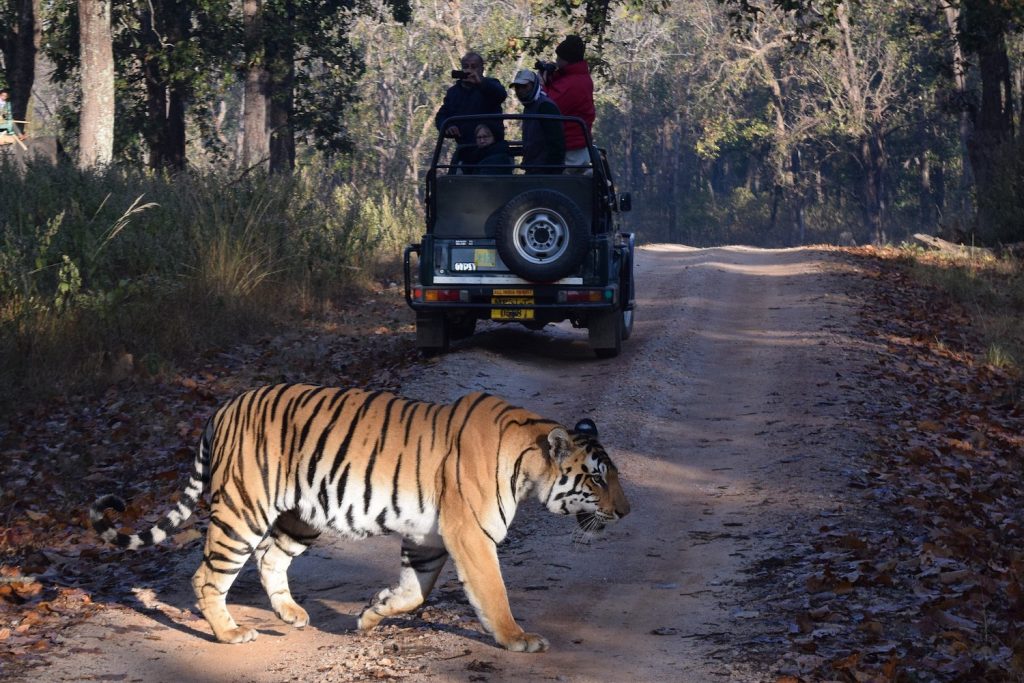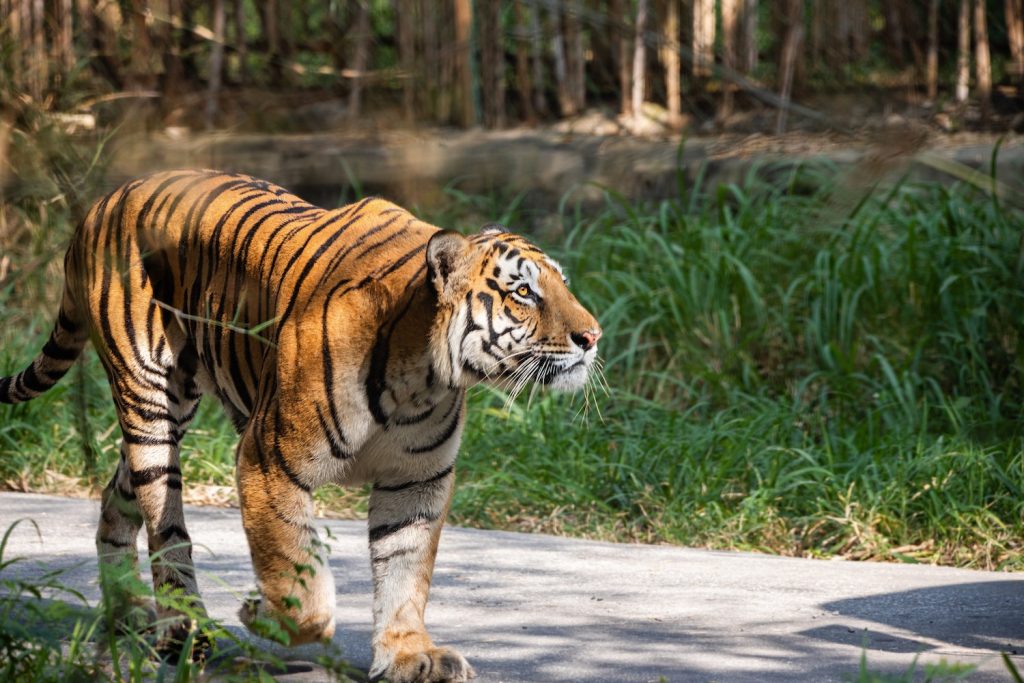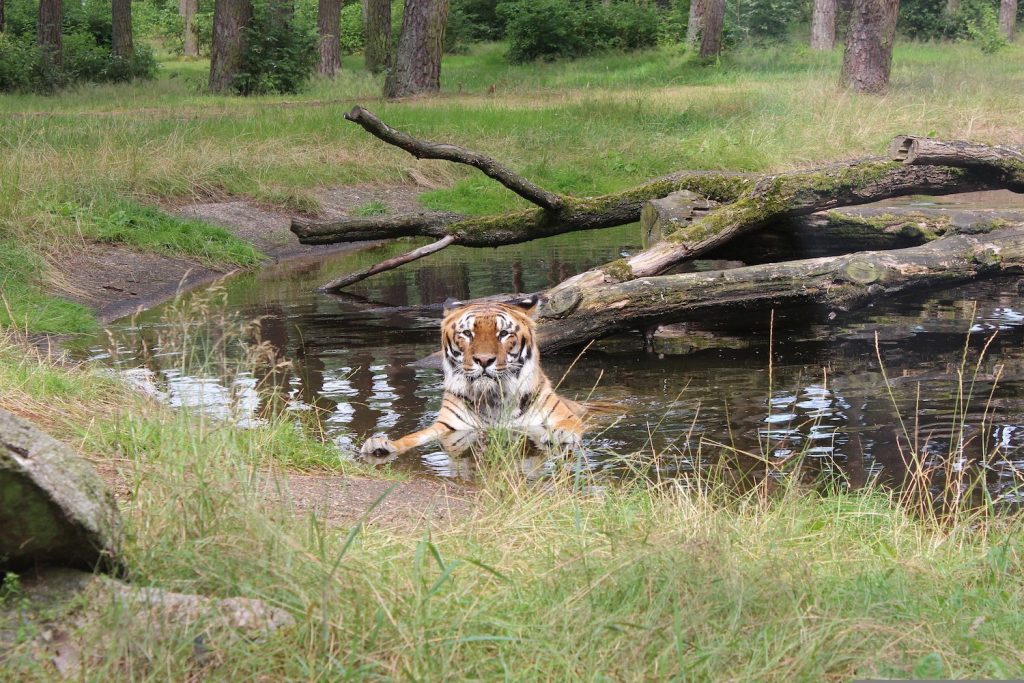If you are planning to travel in Asia, India is one of the top destinations that you shouldn’t miss. Over the years, India has gained a lot of attention from international and local visitors that want to explore the diverse landscape and geography, enjoy an array of sumptuous Indian cuisine, and explore the mountains, beaches, backwaters and even the wildlife. Speaking of wildlife, India currently hosts the largest tiger population in the world and therefore you can always look for trips that would allow you to photograph tigers in the wild.
Encountering tigers in the wild is a thrilling experience and therefore you need to look for tours that can take you closer to action to help you photograph these majestic big cats. Reputed providers with talented guides like, Naturetrek can offer you wildlife tours in India and beyond with experts.
Let’s take a quick look at some of the best places to photograph tigers in the wild in India.
Jim Corbett National Park, Uttarakhand
Named after the legendary naturalist Jim Corbett, this national park is the best wildlife reserve in India where you can photograph tigers. This national park was the first to come under the Project Tiger initiative and currently is home to the most tigers in India. Nestled in the Nainital district, this park is set against the picturesque backdrop of Almora and Nainital. The park offers various jeep safari plans that take you close to the action to click some of the best wildlife shots you can get. With lush green forests all around, you can also enjoy various streams, rivers and waterfalls that cut through the vast area of the park. Apart from the tiger, the park also protects the Asian elephant and the great one-horned rhinoceros.
Bandipur National Park, Karnataka
Being part of the much popular Project Tiger initiative, the Bandipur National Park has also emerged as one of the best places in India to photograph tigers in the wild. It has the second-highest concentration of tigers in India. The park enjoys a typically tropical climate with wet and dry seasons and harbours plenty of wildlife animals like Indian elephant, sloth bear, golden jackal, four-horned antelope and mugger crocodile. With plenty of flora and fauna to discover, the park is a paradise for wildlife lovers and those who want to capture some excellent wildlife pictures. You can also enjoy a weekend getaway at the park with your family and friends.
Kaziranga National Park, Assam
Nestled in the heart of Assam, Kaziranga National Park is home to the world’s largest population of one-horned rhinoceros, but it also has one of the highest densities of tigers in India making it a perfect place for wildlife photographers to capture these big cats in action. However, apart from one-horned rhinoceros and tigers, the park is home to elephants, wild water buffalo and swamp deer (barasingha). The park is immensely vast and offers shelter to birds and animals of a wide variety. Also, various rivers like the Brahmaputra pass through it creating small bodies of water. The park is also a World Heritage Site and therefore experiencing Kaziranga is an adventure in itself.
Nagarhole National Park, Karnataka
Formerly known as Rajiv Gandhi National Park, Nagarhole National Park spreads over the Kodagu and Mysore district. Like Jim Corbett and Bandipur National Park, this park is also an important Tiger Reserve. With plenty of natural streams and rivulets, the park is home to tigers, Asiatic wild dogs, Asiatic elephants, gaurs, sambals, four-horned antelopes and southwestern langurs. Nagarhole National Park is also known for its high-density of tiger population which attracts plenty of wildlife enthusiasts, photographers and scientists to observe, take pictures and study them. This park is also home to a wide variety of birds which frequent this park.
Tadoba Andhari Tiger Reserve, Maharashtra
Known as one of the oldest national parks in Maharashtra, the Tadoba National Park, also known as Tadoba Andhari Tiger Reserve is a part of the Project Tiger initiative. The park is a 3-hour drive from the city of Nagpur and offers a great way for many wildlife enthusiasts and photographers to see tigers in their natural habitat. The park looks great in the post-monsoon season from October when you can click pictures of tigers as well as birds and flowers that you can find all over the park.
Kanha Tiger Reserve, Madhya Pradesh
When you are traveling to India for photographing tigers you must visit the state of Madhya Pradesh. Also known as Kanha-Kisli National Park, the Kanha Tiger Reserve is among the top spots in India to photograph tigers in the wild. It is certainly the biggest national park right in central India. Nestled in the Maikal range of Satpuras, the Kanha National Park has remained the prime destination for tiger enthusiasts and photographers that flock from all corners of India and the world at large. While the park hosts a good population of Bengal tigers, it also is home to the Indian jackal, Bengal fox, Indian leopard, sloth bear, swamp deer, gaur and the very rare blackbuck. The park is also a nesting and migrating place for more than 300 species of birds that frequent here.
Ranthambore Tiger Reserve, Rajasthan
In terms of sheer size, the Ranthambore National Park is certainly one of the largest in the northern part of India. Named after the historic Ranthambore Fort which lies within the park, it became a part of the Project Tiger initiative in 1973. The park harbours dry deciduous forests and has plenty of open grassy meadows that become a perfect ground for tigers. If you are planning to take pictures of tigers in the wild you can take up the jeep safari plans that allow you to be close to the action. Apart from tigers, Ranthambore National Park is home to the Indian leopard, elephants, wild water buffalo, gaur, blackbuck, sambar, spotted deer and many more animals and birds.
Sundarban National Park, West Bengal
Straddling India and Bangladesh, the Sundarbans is the world’s largest mangrove forest. The area stretches from River Hooghly in India to River Baleswar in Bangladesh. The Sundarban National Park is a part of the area on the Indian side which is now a national park, a biosphere reserve and one of the largest tiger reserves for the Bengal tiger in eastern India. The park is also inscribed as a UNESCO World Heritage Site. Visiting the Sundarban National Park from November to March is the best time when the weather is pleasant and clear for sightings.
Apart from these national parks and tiger reserves, you can also find tigers in Pench Tiger Reserve also known as Pench National Park which is one of the premier tiger reserves in India. On the other hand, Bandhavgarh National Park is also a prominent tiger reserve in India that can offer you glimpses of tigers in their natural habitat.
The post Best Places to Photograph Tigers in the Wild in India appeared first on Wandering Earl.




